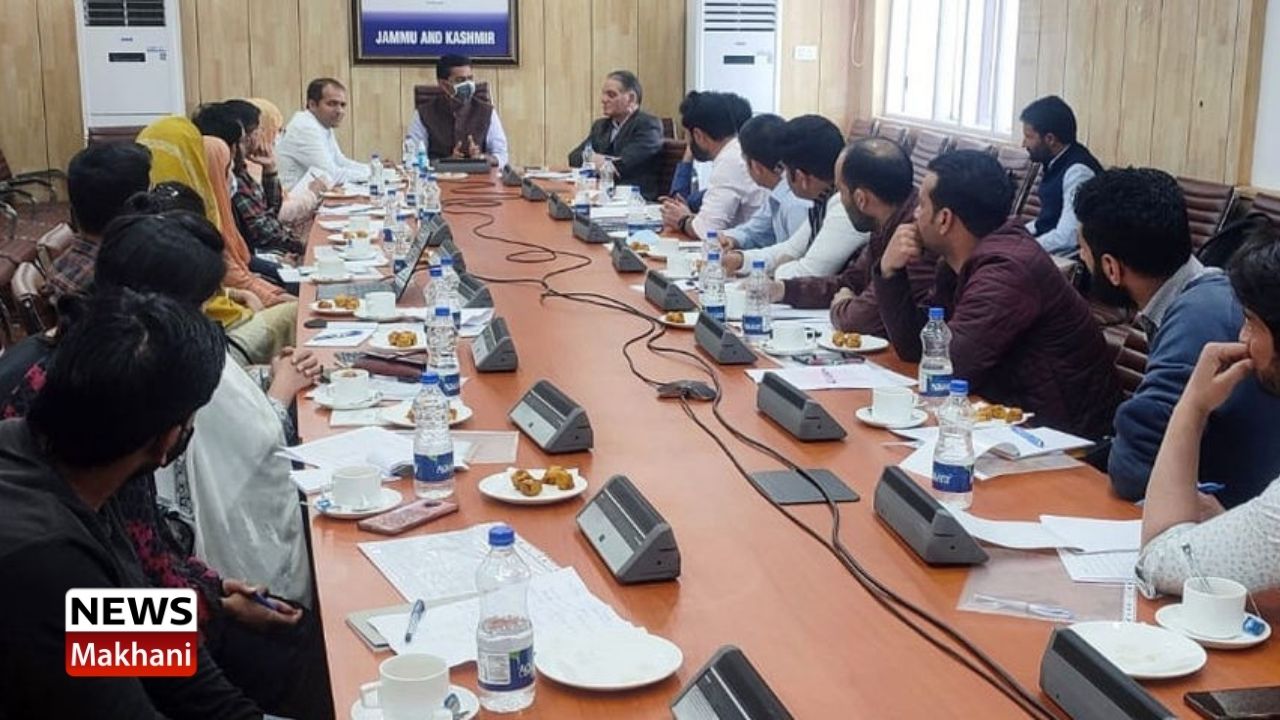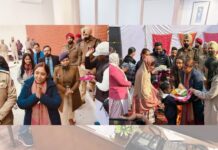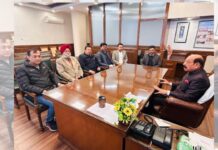Shahid addressed induction programme for TRI Fellows
SRINAGAR, MARCH 29 2022
Secretary Tribal Affairs Department and Director, Tribal Research Institute (TRI), Dr Shahid Iqbal Choudhary today held an interaction with selected Fellows and Associate Fellows of Tribal Research Institute, at the induction programme organised at Civil Secretariat Srinagar and asked to conduct in-depth research, studies and also formulate plans for socio-economic and infrastructure development of tribal communities in J&K.
READ MORE :-Govt committed to provide quality healthcare services in J&K: ACS Health
Special Secretary, Tribal Affairs, Harun Malik, OSD Tribal Research Institute, Dr Abdul Khabir, DD Tribal Affairs Kashmir, Dilshada Akhter, OSD Gaurav Gupta and other officers were also present.
During the interaction with over 20 fellows, Dr Shahid gave the fellows a brief outline about the working, nature and functioning of the department and a brief outline of the tribal population and their major issues.
Asking the fellows to research in depth on tribal related issues, Secretary said that with each passing day, new challenges and opportunities emerge and you need to come up with fresh, innovative ideas and concepts in to address the realities and challenges faced by the tribal people.
During the interaction, a variety of subjects related to tribals like Development Planning, Livelihood Schemes, Tribal Artisans, Mapping of Tribal Villages, Documentation of Tribal Culture came up for discussion.
Giving details about the fellowship programme, he said that it has been designed in project and policy formulation to support the departmental initiatives in tune with community demands. He said that the fellowships under different sectors will lay foundation for development planning aimed at tribal welfare. Based on the outcome of such studies and reports the tribal affairs department will coordinate with concerned departments and organisation for required interventions.
During the interaction, he said that the focus of the fellowship is to do a basic research data base that can be incorporated in the government’s policies and interventions so as to put in place requisite policy and procedural enablers.
Maintaining that a lot goes in making fellowships effective and result oriented, Secretary told them that they need to sensitise stakeholder departments and organisations about the various issues faced by the tribal population and the remedies thereof. He further asked them to study about the gaps so as to bring an inclusion and equality of tribals as the development occurs in real sense when all sections are taken along and even a single person being disadvantaged is a concern for the government.
He said that the fellowship will provide them with an invaluable opportunity to understand governance and work with the government, besides they will get exposed to various experts in the field gaining an enriching experience.
He said that the department will remain in constant touch with the fellows to ensure free flow on information between fellows and the government to give the former a mechanism to share feedback and overcome challenges. He also said that the entire cohort will come together on monthly basis to reflect on progress achieved and reflect on skill building and problem solving sessions.
He urged them to express their ideas and thoughts to him frankly . The discussion was marked by a large degree of experience sharing from both sides.
The fellows will work on different projects like Geospatial Technology Based Approach for Tribal Area Development Planning in J&K, Impact of various livelihood schemes on C Tribal women of J&K, Dietary habits of Tribals of J&K and its contribution towards Child Nutrition, Tribal Products and challenges faced by Tribal artisans of J&K for Marketing of these products, Identify the impact of digitalization on the society and culture of Tribals of J&K, Role of Tribal freedom fighters of J&K in the freedom struggle of India, Mapping of Tribal villages, Dhoks and Springs (Tribal areas), Issues faced by Specially abled persons of Tribal communities of J&K and suggest remedial mechanism for their welfare.

 हिंदी
हिंदी






